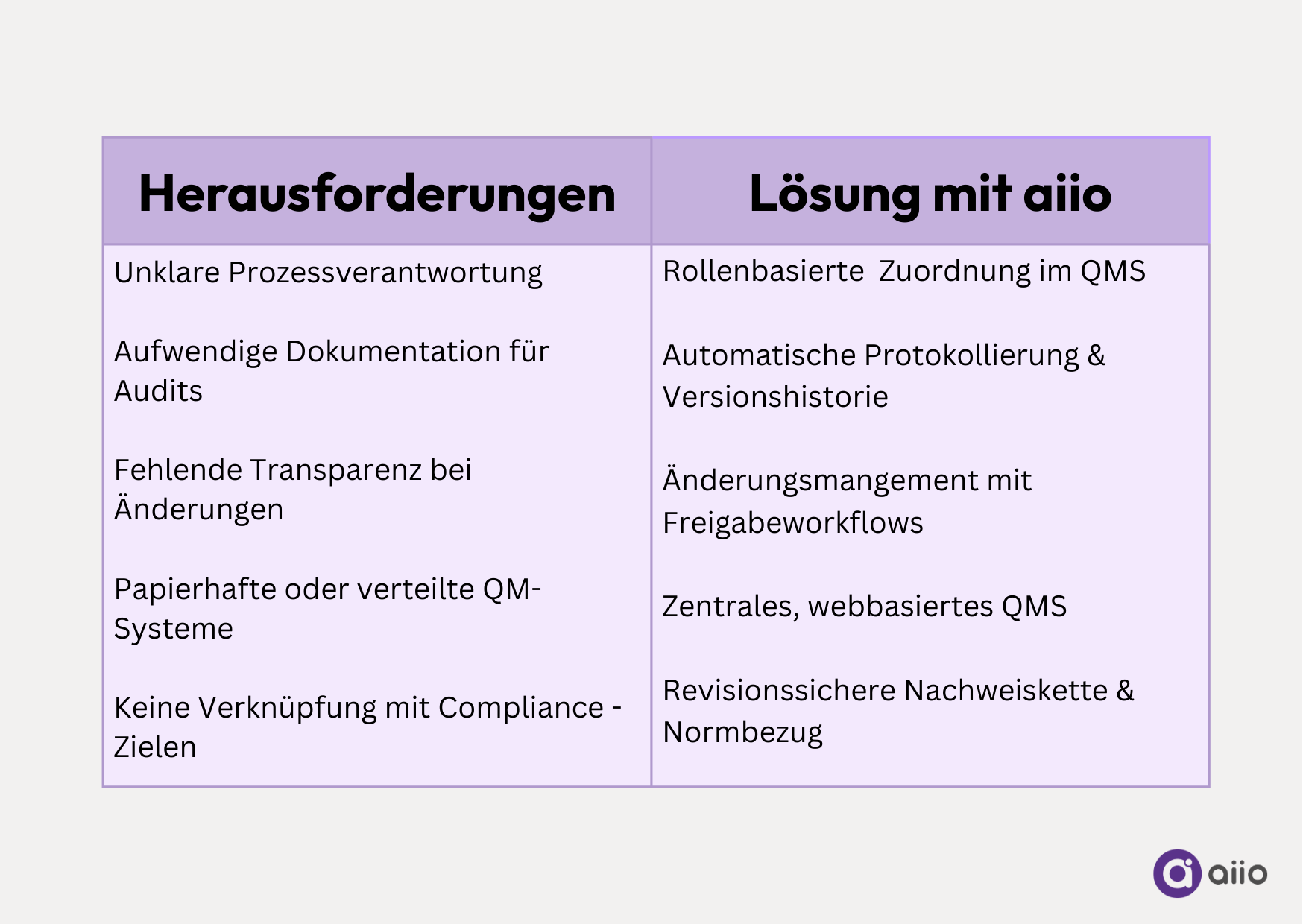What is quality management?
Quality management (QM) describes all measures that serve to sustainably improve products, services and processes - with a focus on customer satisfaction, efficiency and standard-compliant implementation.
The establishment of a quality management system (QMS) that ensures clear processes, responsibilities and evidence is central to this.
Why is compliance so important in QM?
Compliance means adhering to legal and normative requirements. This is particularly relevant in quality management - e.g. in healthcare, manufacturing or finance.in the healthcare, manufacturing or finance sectors.
ISO 9001:2015 is the internationally recognized standard for quality management systems - and therefore the backbone for a standard-compliant QMS.
ISO9001 in detail - the 7 principles
ISO 9001 is based on seven proven QM principles that can be applied in all industries
- Customer orientation
Understanding and meeting customer needs and expectations. - Leadership
Managers provide clear direction, promote commitment and transparency. - Involving people
Involve and qualify employees at all levels. - Process-oriented approach
Structured, documented processes - measurable and controllable. - System-oriented management
Recognize and optimize interrelationships between processes. - Continuous improvement
Initiate, monitor and evaluate improvements. - Fact-based decisions
Base decisions on valid data and analyses. -
Note: These principles are anchored directly in the ISO text - a systematic, documented procedure is mandatory.

ISO9001 & digitalization: A modern QM system
A digital QMS based on ISO 9001 enables
- Error reduction through automated approvals and checkpoints
- Efficiency through reusable process modules
- Audit security through complete, traceable process history
- Clarity through structured processes with responsibilities
Conclusion
Today, a digital quality management system is no longer a nice-to-have - but a prerequisite for sustainable quality, customer satisfaction and legal certainty.
With the right platform, quality and compliance do not become a burden - but a competitive advantage.
